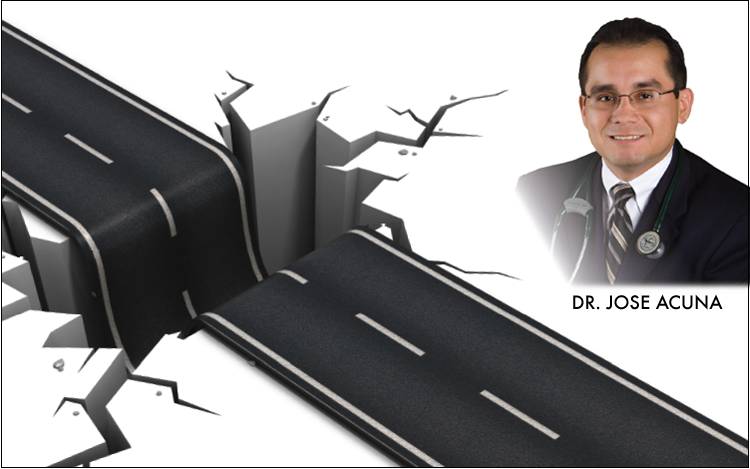ASK A PHYSICIAN WHO KNOWS!
WEIGHT LOSS IS NEVER an easy prospect, but oftentimes it’s made even harder by our own foibles. There are many “dieting” missteps when it comes to healthy weight loss, and each and every one can throw a wrench in even the best intentions.
However, knowledge is power, which is why you should know and understand the following pitfalls so you can avoid them! Then, your healthy weight-loss plan can stay on track so you can achieve the healthiest you possible.
Pitfall #1: Relying on Fad Diets
If, to you, the term “diet” means cutting carbs, eating foods of just one color or drinking only liquids, then you’re shooting your efforts in the foot before you even start. All those extreme fad diets — including diet pills — don’t work over the long-term, and many of them can hurt your metabolism and your health. Healthy weight loss takes time and effort, and the best path to success is to make lifestyle changes like choosing daily exercise and a healthy “diet.”
Pitfall #2: Doing the Same Thing Week After Week
Cutting your overall calories is a good way to lose weight, but you’ll likely have to continue to cut calories, either through exercise or by reducing even more calories. Say you cut 500 calories a day and lose one pound a week. If you make no other changes, then your weight loss will likely plateau over time because your metabolism slows down to match your calorie intake. To continue to lose weight, you’ll have to take other measures, such as increasing your metabolism by increasing muscle mass, cutting more calories (But, see pitfall #5 for another caution), or increasing daily exercise.
Pitfall #3: Eating the Wrong Types of Calories
The types of calories you eat are important to the success of your diet, for a few different reasons. Studies have shown that you could lose weight by eating a reduced calorie diet of junk food, but your body won’t thank you for it. Calories from healthy foods — fruits and vegetables, whole grains, nonfat dairy, and lean meats — boost your metabolism and increase feelings of fullness and supply the vitamins and nutrients your body needs to be healthy. Calories from unhealthy foods — fats, sugars, salt, and simple carbs — leave you hungry, tired, and craving more.
Pitfall #4: Not Counting Calories Well Enough
Counting and calculating the actual calories you consume daily takes a lot of time and effort, but it may be a good idea at the onset a reduced-calorie diet. Most of us have a skewed idea of how many calories we eat in any given meal, and calculating the actual calories in your diet can be illuminating. Usually, you’ll see how many extra calories you consume from second helpings at dinner, alcohol, midnight snacks, sugary sodas, mindless snacking, a fancy coffee beverage every morning, and more. You’ll also see that you get much bigger portions for the same calories when eating fruits and vegetables and lean meats versus junk food, candy, and processed foods.
Pitfall #5: Reducing Calories Drastically
Cutting too many calories — such as through skipping meals — actually has the reverse effect. It makes your body go into “survival mode” and slows your metabolism to a crawl, making weight loss near impossible. Again, changing your lifestyle through better eating habits and a daily exercise regimen is the best way to healthfully lose weight over time.
CREDIT
article by DR. JOSE ACUNA
ABOUT THE PHYSICIAN: Dr. Jose Acuna is an internal medicine specialist and a Polk County Medical Association member based out of Lakeland. He serves patients at WellMed at SE Lakeland, 4740 Exploration Avenue.
